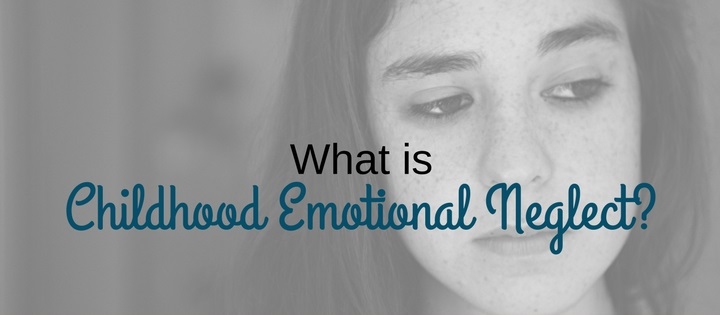Childhood emotional neglect is an often overlooked but significant factor that can contribute to a range of mental health issues in adulthood. When a child’s emotional needs are consistently dismissed or ignored by their primary caregivers, the child may grow into an adult who struggles with self-awareness, emotional regulation, and the capacity for meaningful interpersonal relationships. They might develop a tendency to suppress or dismiss their own feelings, leading to problems with self-esteem, anxiety, depression, and difficulties in forming and maintaining relationships.
The scars left by emotional neglect during formative years can also lead to destructive coping mechanisms in adulthood such as substance abuse, self-harm, or other risky behaviors in a desperate attempt to navigate their emotional world. Self-blame and feelings of unworthiness can become deeply ingrained, leading to a negative self-concept that affects the individual’s overall life satisfaction and functioning.
The absence of nurturing emotional interactions during childhood can also impair the development of healthy emotional self-regulation, making it difficult for the individual to manage stress, face challenges, or bounce back from setbacks effectively. Furthermore, the lack of understanding and validation for their emotions in their early life may make these individuals more vulnerable to emotional manipulation, exploitation, or abuse in their adult relationships. Therefore, it is crucial to recognize and address the long-term effects of childhood emotional neglect on an individual’s mental well-being and relational health.
Understanding Childhood Emotional Neglect: A Foundation for Adult Triggers
Understanding Childhood Emotional Neglect: A Foundation for Adult Triggers is a subject matter that delves into the analysis of how emotional deprivation during formative years can lay a groundwork for adult sensitivity and reactions. This topic focuses on the repercussions that a lack of emotional support, validation, and attention during childhood can have on an individual’s adult life. Emotional neglect in childhood is often a silent trauma that many individuals are not conscious of, as it is not about what happened, but rather about what didn’t happen.
This absence of emotional nurturing can lead to a host of issues in adulthood, including anxiety, depression, difficulties in forming healthy relationships, low self-esteem, and emotional instability. It can also lead to a tendency to overreact or be hypersensitive to certain triggers that may seem insignificant to others but hold a profound impact on the neglected individual. These triggers often stem from unresolved emotional needs from their past, which were not appropriately met during their childhood.
Understanding this concept can help adults who experienced emotional neglect in their childhood to identify their triggers, comprehend their responses, and seek appropriate therapeutic intervention. It can also provide significant insight for parents, educators, and mental health professionals in recognizing the signs of emotional neglect and implementing effective measures to prevent or mitigate its long-lasting effects. It’s a critical step towards raising awareness about this often overlooked form of child abuse and establishing healthier emotional environments for children.

Common Emotional Triggers in Adults Who Experienced Neglect
Emotional triggers in adults who experienced neglect during their formative years can manifest in a variety of ways, often surfacing as reactions to seemingly benign situations or stimuli. These triggers can be deeply ingrained, stemming from the lack of essential emotional nurturing during their childhood. One common trigger is the feeling of abandonment or rejection.
These individuals may perceive slight changes in other people’s behavior as signs of impending abandonment, leading to heightened anxiety or defensive behaviors aimed at averting the perceived threat. Another common trigger is criticism, or perceived criticism. Due to their past experiences, these adults may view any form of criticism, no matter how constructive, as a personal attack, leading to feelings of insecurity and inadequacy.
Fear of trust is another prevalent emotional trigger. Neglected children often have their trust violated by the very individuals who were supposed to provide security and care. This can result in difficulties forming and maintaining relationships in adulthood. They might constantly be on guard, expecting betrayal, and therefore, they struggle to trust others. This can severely affect their personal and professional relationships.
Feelings of worthlessness or unimportance can also act as triggers, often rooted in the neglect they experienced. They might struggle with self-esteem issues, constantly undervaluing themselves, which can lead to significant emotional distress. Emotional neglect can also lead to an overbearing need for control in adulthood. As children, they had no control over their situation; as adults, they may attempt to control every aspect of their lives, and any disruption to this control can trigger intense stress and anxiety.
Understanding these triggers and their origins is a crucial step towards healing and building healthier coping mechanisms. Therapy and counseling can provide a safe space for exploring these triggers and working towards overcoming their debilitating effects.

The Impact of Emotional Neglect on Relationship Patterns
Emotional neglect, often overlooked due to its silent and invisible nature, can significantly influence relationship patterns in adulthood. This phenomenon occurs when a person’s emotional needs are consistently ignored or dismissed, typically in childhood by primary caregivers.
In many instances, victims of emotional neglect are not aware of the adverse impacts this has on their ability to form and maintain healthy relationships. As adults, they may experience difficulties in identifying, expressing, and managing emotions, leading to a lack of emotional intimacy and vulnerability in relationships.
Moreover, these individuals may develop maladaptive coping mechanisms, such as avoidance or denial of feelings, which can further impede meaningful connection with others. They might also develop a fear of rejection or abandonment, causing them to isolate themselves or avoid getting too close to others. On the other hand, they may become overly dependent on their partners for emotional support, creating a co-dependent relationship dynamic.
Additionally, the impact of emotional neglect can manifest in one’s relationship with oneself. Often, these individuals struggle with self-esteem and self-worth issues, leading to a self-perpetuating cycle of self-neglect. They may also have trouble setting and maintaining personal boundaries, making them susceptible to further emotional harm.
Understanding the impact of emotional neglect on relationship patterns is crucial for healing and developing healthier relational dynamics. It’s important to recognize these patterns and work towards breaking the cycle, either through self-help strategies or professional therapeutic interventions. Ensuring emotional needs are met and fostering emotional intelligence can significantly improve one’s ability to form and nurture fulfilling relationships. Remember, emotional neglect is a significant issue, and overcoming its effects requires time, patience, and often professional guidance.

Coping Mechanisms and Strategies for Managing Triggers
Coping mechanisms and strategies for managing triggers are vital tools in maintaining mental and emotional well-being. Triggers can stem from a variety of sources, such as past traumas, stress, or emotional vulnerabilities. Therefore, understanding one’s unique set of triggers is the first step towards managing them effectively.
Coping mechanisms are techniques that individuals use to deal with stressful situations. These can be either healthy or unhealthy, depending on the effect they have on the individual’s overall well-being. Examples of healthy coping mechanisms include exercise, meditation, and seeking support from loved ones or mental health professionals. On the other hand, unhealthy coping mechanisms might include substance abuse or self-harm, which only serve to exacerbate the individual’s stress or emotional turmoil in the long run.
Strategies for managing triggers involve identifying what causes distress, and then taking steps to either avoid these triggers or change one’s reaction to them. This could involve techniques such as cognitive-behavioral therapy, which helps individuals reframe negative thought patterns that could be contributing to their distress. Another strategy could be mindfulness, which encourages individuals to stay present and avoid dwelling on past traumas or future anxieties.
Coping mechanisms and trigger management strategies are not one-size-fits-all. What works for one individual may not work for another, due to differences in personal experiences, mental health status, and individual resilience. Thus, it can be beneficial to work with a mental health professional to develop a personalized plan for managing triggers and stressors. With the right set of tools, individuals can learn to navigate their triggers effectively, leading to improved mental and emotional health.
Seeking Professional Help: Therapy Options for Healing Emotional Neglect
Recognizing the need for professional help is a significant step towards healing emotional neglect. Various therapy options are available, each designed to address specific aspects of emotional neglect. Cognitive Behavioral Therapy (CBT), for instance, is a popular choice for many. It focuses on altering negative thought patterns and developing more positive, constructive ways of thinking.
The aim is to empower individuals to break free from the destructive cycle of emotional neglect. Another option is Dialectical Behavior Therapy (DBT), which is particularly beneficial for those struggling with self-harm or suicidal tendencies, common among victims of emotional neglect. DBT balances acceptance and change, teaching individuals how to tolerate distressing emotions while working towards emotional wellbeing.
Eye Movement Desensitization and Reprocessing (EMDR) is another choice, particularly for those whose emotional neglect stems from traumatic experiences. EMDR uses eye movements to reduce the intensity of distressing memories. Lastly, psychodynamic therapy delves into childhood experiences and their role in current struggles, helping individuals understand and resolve these influences. Each therapy option has its unique approach and potential benefits, and a professional therapist can guide you in selecting the most suitable one based on your individual circumstances.
Regardless of the therapy option chosen, the ultimate goal is to facilitate healing from emotional neglect, fostering resilience and emotional health. It’s crucial to remember that seeking professional help is not a sign of weakness, but rather an act of courage and a commitment to better mental health. Every step you take towards recovery, no matter how small, brings you closer to a healthier, brighter future.
